afterLoad (456.45KB) (531μs)
afterInitialise (1.28MB) (28.66ms)
afterRoute (826.27KB) (8.86ms)
beforeRenderComponent com_content (34.9KB) (314μs)
Before Access::preloadComponents (all components) (95.2KB) (1.11ms)
After Access::preloadComponents (all components) (98.44KB) (1.89ms)
Before Access::getAssetRules (id:8 name:com_content) (1.13KB) (18μs)
After Access::getAssetRules (id:8 name:com_content) (7.05KB) (43μs)
afterRenderComponent com_content (1.31MB) (154ms)
afterDispatch (17.3KB) (6.99ms)
beforeRenderRawModule mod_articles_category (READ MORE...) (435.25KB) (15.88ms)
afterRenderRawModule mod_articles_category (READ MORE...) (66.75KB) (95.65ms)
beforeRenderRawModule mod_custom (BOOST YOUR IMMUNE DEFENSE) (6.45KB) (33μs)
afterRenderRawModule mod_custom (BOOST YOUR IMMUNE DEFENSE) (3.8KB) (193μs)
beforeRenderRawModule mod_tags_popular (Search) (2.36KB) (17μs)
afterRenderRawModule mod_tags_popular (Search) (26.05KB) (191ms)
beforeRenderRawModule mod_custom (Get additionel and more detailed knowledge ) (816B) (35μs)
afterRenderRawModule mod_custom (Get additionel and more detailed knowledge ) (1.53KB) (58μs)
beforeRenderRawModule mod_custom (Overview of vitamins, minerals, and essential fatty acids) (768B) (12μs)
afterRenderRawModule mod_custom (Overview of vitamins, minerals, and essential fatty acids) (960B) (23μs)
beforeRenderRawModule mod_custom (Q10 goes by many names) (608B) (10μs)
afterRenderRawModule mod_custom (Q10 goes by many names) (928B) (18μs)
beforeRenderRawModule mod_custom (Check this before you buy a Q10 product) (752B) (9μs)
afterRenderRawModule mod_custom (Check this before you buy a Q10 product) (944B) (19μs)
beforeRenderRawModule mod_custom (Are you taking supplements) (736B) (9μs)
afterRenderRawModule mod_custom (Are you taking supplements) (1.03KB) (18μs)
beforeRenderRawModule mod_custom (Weight loss that works) (736B) (9μs)
afterRenderRawModule mod_custom (Weight loss that works) (1.03KB) (18μs)
beforeRenderRawModule mod_custom (Antiaging) (720B) (9μs)
afterRenderRawModule mod_custom (Antiaging) (912B) (17μs)
beforeRenderRawModule mod_menu (Are you getting enough vitamins and minerals?) (2.5KB) (12μs)
afterRenderRawModule mod_menu (Are you getting enough vitamins and minerals?) (23.02KB) (486μs)
beforeRenderRawModule mod_menu (The key to increased well-being) (736B) (15μs)
afterRenderRawModule mod_menu (The key to increased well-being) (17.83KB) (2.51ms)
beforeRenderRawModule mod_menu (Did you know.....) (720B) (65μs)
afterRenderRawModule mod_menu (Did you know.....) (25.52KB) (1.78ms)
beforeRenderRawModule mod_custom (Useful Links) (1.06KB) (26μs)
afterRenderRawModule mod_custom (Useful Links) (1.02KB) (42μs)
beforeRenderRawModule mod_custom (Chronic fatigue tied Alan to his bed but Q10 capsules saved him:) (259.35KB) (7.21ms)
afterRenderRawModule mod_custom (Chronic fatigue tied Alan to his bed but Q10 capsules saved him:) (1.06KB) (41μs)
beforeRenderModule mod_custom (Chronic fatigue tied Alan to his bed but Q10 capsules saved him:) (768B) (5μs)
afterRenderModule mod_custom (Chronic fatigue tied Alan to his bed but Q10 capsules saved him:) (1.3KB) (56μs)
beforeRenderRawModule mod_custom (Cholesterol-lowering without side effects:) (368B) (12μs)
afterRenderRawModule mod_custom (Cholesterol-lowering without side effects:) (1.06KB) (23μs)
beforeRenderModule mod_custom (Cholesterol-lowering without side effects:) (752B) (1μs)
afterRenderModule mod_custom (Cholesterol-lowering without side effects:) (1.28KB) (29μs)
beforeRenderModule mod_articles_category (READ MORE...) (20.82KB) (4.38ms)
afterRenderModule mod_articles_category (READ MORE...) (1.25KB) (63μs)
beforeRenderModule mod_custom (BOOST YOUR IMMUNE DEFENSE) (6.81KB) (16μs)
afterRenderModule mod_custom (BOOST YOUR IMMUNE DEFENSE) (1.28KB) (25μs)
beforeRenderModule mod_tags_popular (Search) (1.98KB) (12μs)
afterRenderModule mod_tags_popular (Search) (1.27KB) (22μs)
beforeRenderModule mod_custom (Get additionel and more detailed knowledge ) (1.17KB) (10μs)
afterRenderModule mod_custom (Get additionel and more detailed knowledge ) (1.3KB) (19μs)
beforeRenderModule mod_custom (Overview of vitamins, minerals, and essential fatty acids) (384B) (10μs)
afterRenderModule mod_custom (Overview of vitamins, minerals, and essential fatty acids) (1.31KB) (20μs)
beforeRenderModule mod_custom (Q10 goes by many names) (208B) (8μs)
afterRenderModule mod_custom (Q10 goes by many names) (1.27KB) (25μs)
beforeRenderModule mod_custom (Check this before you buy a Q10 product) (352B) (12μs)
afterRenderModule mod_custom (Check this before you buy a Q10 product) (1.28KB) (26μs)
beforeRenderModule mod_custom (Are you taking supplements) (352B) (12μs)
afterRenderModule mod_custom (Are you taking supplements) (1.28KB) (21μs)
beforeRenderModule mod_custom (Weight loss that works) (336B) (9μs)
afterRenderModule mod_custom (Weight loss that works) (1.27KB) (19μs)
beforeRenderModule mod_custom (Antiaging) (336B) (9μs)
afterRenderModule mod_custom (Antiaging) (3.77KB) (19μs)
beforeRenderModule mod_menu (Are you getting enough vitamins and minerals?) (2.13KB) (11μs)
afterRenderModule mod_menu (Are you getting enough vitamins and minerals?) (1.3KB) (20μs)
beforeRenderModule mod_menu (The key to increased well-being) (352B) (10μs)
afterRenderModule mod_menu (The key to increased well-being) (1.28KB) (19μs)
beforeRenderModule mod_menu (Did you know.....) (336B) (9μs)
afterRenderModule mod_menu (Did you know.....) (1.27KB) (20μs)
beforeRenderModule mod_custom (Useful Links) (1.44KB) (8μs)
afterRenderModule mod_custom (Useful Links) (1.27KB) (20μs)
beforeRenderRawModule mod_menu (Main Menu - English) (29.14KB) (3.78ms)
afterRenderRawModule mod_menu (Main Menu - English) (191.2KB) (4.56ms)
beforeRenderModule mod_menu (Main Menu - English) (720B) (4μs)
afterRenderModule mod_menu (Main Menu - English) (4.86KB) (54μs)
beforeRenderRawModule mod_languages (Sprogskift) (3.94KB) (19μs)
afterRenderRawModule mod_languages (Sprogskift) (22.54KB) (14.12ms)
beforeRenderModule mod_languages (Sprogskift) (720B) (6μs)
afterRenderModule mod_languages (Sprogskift) (5.31KB) (27μs)
beforeRenderRawModule mod_finder () (6.34KB) (13μs)
afterRenderRawModule mod_finder () (64.59KB) (8.5ms)
beforeRenderModule mod_finder () (704B) (5μs)
afterRenderModule mod_finder () (3.29KB) (35μs)
beforeRenderRawModule mod_custom () (6.62KB) (147μs)
afterRenderRawModule mod_custom () (26.51KB) (6.94ms)
beforeRenderModule mod_custom () (704B) (6μs)
afterRenderModule mod_custom () (1.23KB) (51μs)
beforeRenderRawModule mod_menu (Main Menu - English) (5.07KB) (110μs)
afterRenderRawModule mod_menu (Main Menu - English) (6.3KB) (3.81ms)
beforeRenderModule mod_menu (Main Menu - English) (720B) (5μs)
afterRenderModule mod_menu (Main Menu - English) (1.25KB) (51μs)
beforeRenderRawModule mod_languages (Sprogskift Mobil) (912B) (21μs)
afterRenderRawModule mod_languages (Sprogskift Mobil) (3.89KB) (3.91ms)
beforeRenderModule mod_languages (Sprogskift Mobil) (720B) (6μs)
afterRenderModule mod_languages (Sprogskift Mobil) (1.27KB) (34μs)
beforeRenderRawModule mod_finder () (2.3KB) (12μs)
afterRenderRawModule mod_finder () (6.29KB) (7.48ms)
beforeRenderModule mod_finder () (704B) (5μs)
afterRenderModule mod_finder () (1.23KB) (50μs)
beforeRenderRawModule mod_custom () (8.66KB) (207μs)
afterRenderRawModule mod_custom () (904B) (150μs)
beforeRenderModule mod_custom () (704B) (3μs)
afterRenderModule mod_custom () (2.43KB) (30μs)
beforeRenderRawModule mod_custom () (688B) (87μs)
afterRenderRawModule mod_custom () (896B) (95μs)
beforeRenderModule mod_custom () (704B) (2μs)
afterRenderModule mod_custom () (2.71KB) (22μs)
afterRender (381.29KB) (43.67ms)
| 1 x afterRenderRawModule mod_tags_popular (Search) (26.05KB) (30.72%) | 190.77ms |
| 1 x afterRenderComponent com_content (1.31MB) (24.79%) | 153.96ms |
| 1 x afterRenderRawModule mod_articles_category (READ MORE...) (66.75KB) (15.4%) | 95.65ms |
| 1 x afterRender (381.29KB) (7.03%) | 43.67ms |
| 1 x afterInitialise (1.28MB) (4.62%) | 28.66ms |
| 1 x beforeRenderRawModule mod_articles_category (READ MORE...) (435.25KB) (2.56%) | 15.88ms |
| 1 x afterRenderRawModule mod_languages (Sprogskift) (22.54KB) (2.27%) | 14.12ms |
| 1 x afterRoute (826.27KB) (1.43%) | 8.86ms |
| 1 x afterRenderRawModule mod_finder () (64.59KB) (1.37%) | 8.50ms |
| 1 x afterRenderRawModule mod_finder () (6.29KB) (1.21%) | 7.48ms |
| 1 x beforeRenderRawModule mod_custom (Chronic fatigue tied Alan to his bed but Q10 capsules saved him:) (259.35KB) (1.16%) | 7.21ms |
| 1 x afterDispatch (17.3KB) (1.13%) | 6.99ms |
| 1 x afterRenderRawModule mod_custom () (26.51KB) (1.12%) | 6.94ms |
| 1 x afterRenderRawModule mod_menu (Main Menu - English) (191.2KB) (0.73%) | 4.56ms |
| 1 x beforeRenderModule mod_articles_category (READ MORE...) (20.82KB) (0.71%) | 4.38ms |
| 1 x afterRenderRawModule mod_languages (Sprogskift Mobil) (3.89KB) (0.63%) | 3.91ms |
| 1 x afterRenderRawModule mod_menu (Main Menu - English) (6.3KB) (0.61%) | 3.81ms |
| 1 x beforeRenderRawModule mod_menu (Main Menu - English) (29.14KB) (0.61%) | 3.78ms |
| 1 x afterRenderRawModule mod_menu (The key to increased well-being) (17.83KB) (0.4%) | 2.51ms |
| 1 x After Access::preloadComponents (all components) (98.44KB) (0.3%) | 1.89ms |
| 1 x afterRenderRawModule mod_menu (Did you know.....) (25.52KB) (0.29%) | 1.78ms |
| 1 x Before Access::preloadComponents (all components) (95.2KB) (0.18%) | 1.11ms |
| 1 x afterLoad (456.45KB) (0.09%) | 531μs |
| 1 x afterRenderRawModule mod_menu (Are you getting enough vitamins and minerals?) (23.02KB) (0.08%) | 486μs |
| 1 x beforeRenderComponent com_content (34.9KB) (0.05%) | 314μs |
| 1 x beforeRenderRawModule mod_custom () (8.66KB) (0.03%) | 207μs |
| 1 x afterRenderRawModule mod_custom (BOOST YOUR IMMUNE DEFENSE) (3.8KB) (0.03%) | 193μs |
| 1 x afterRenderRawModule mod_custom () (904B) (0.02%) | 150μs |
| 1 x beforeRenderRawModule mod_custom () (6.62KB) (0.02%) | 147μs |
| 1 x beforeRenderRawModule mod_menu (Main Menu - English) (5.07KB) (0.02%) | 110μs |
| 1 x afterRenderRawModule mod_custom () (896B) (0.02%) | 95μs |
| 1 x beforeRenderRawModule mod_custom () (688B) (0.01%) | 87μs |
| 1 x beforeRenderRawModule mod_menu (Did you know.....) (720B) (0.01%) | 65μs |
| 1 x afterRenderModule mod_articles_category (READ MORE...) (1.25KB) (0.01%) | 63μs |
| 1 x afterRenderRawModule mod_custom (Get additionel and more detailed knowledge ) (1.53KB) (0.01%) | 58μs |
| 1 x afterRenderModule mod_custom (Chronic fatigue tied Alan to his bed but Q10 capsules saved him:) (1.3KB) (0.01%) | 56μs |
| 1 x afterRenderModule mod_menu (Main Menu - English) (4.86KB) (0.01%) | 54μs |
| 1 x afterRenderModule mod_custom () (1.23KB) (0.01%) | 51μs |
| 1 x afterRenderModule mod_menu (Main Menu - English) (1.25KB) (0.01%) | 51μs |
| 1 x afterRenderModule mod_finder () (1.23KB) (0.01%) | 50μs |
| 1 x After Access::getAssetRules (id:8 name:com_content) (7.05KB) (0.01%) | 43μs |
| 1 x afterRenderRawModule mod_custom (Useful Links) (1.02KB) (0.01%) | 42μs |
| 1 x afterRenderRawModule mod_custom (Chronic fatigue tied Alan to his bed but Q10 capsules saved him:) (1.06KB) (0.01%) | 41μs |
| 1 x beforeRenderRawModule mod_custom (Get additionel and more detailed knowledge ) (816B) (0.01%) | 35μs |
| 1 x afterRenderModule mod_finder () (3.29KB) (0.01%) | 35μs |
| 1 x afterRenderModule mod_languages (Sprogskift Mobil) (1.27KB) (0.01%) | 34μs |
| 1 x beforeRenderRawModule mod_custom (BOOST YOUR IMMUNE DEFENSE) (6.45KB) (0.01%) | 33μs |
| 1 x afterRenderModule mod_custom () (2.43KB) (0%) | 30μs |
| 1 x afterRenderModule mod_custom (Cholesterol-lowering without side effects:) (1.28KB) (0%) | 29μs |
| 1 x afterRenderModule mod_languages (Sprogskift) (5.31KB) (0%) | 27μs |
| 1 x beforeRenderRawModule mod_custom (Useful Links) (1.06KB) (0%) | 26μs |
| 1 x afterRenderModule mod_custom (Check this before you buy a Q10 product) (1.28KB) (0%) | 26μs |
| 1 x afterRenderModule mod_custom (BOOST YOUR IMMUNE DEFENSE) (1.28KB) (0%) | 25μs |
| 1 x afterRenderModule mod_custom (Q10 goes by many names) (1.27KB) (0%) | 25μs |
| 1 x afterRenderRawModule mod_custom (Overview of vitamins, minerals, and essential fatty acids) (960B) (0%) | 23μs |
| 1 x afterRenderRawModule mod_custom (Cholesterol-lowering without side effects:) (1.06KB) (0%) | 23μs |
| 1 x afterRenderModule mod_tags_popular (Search) (1.27KB) (0%) | 22μs |
| 1 x afterRenderModule mod_custom () (2.71KB) (0%) | 22μs |
| 1 x afterRenderModule mod_custom (Are you taking supplements) (1.28KB) (0%) | 21μs |
| 1 x beforeRenderRawModule mod_languages (Sprogskift Mobil) (912B) (0%) | 21μs |
| 1 x afterRenderModule mod_custom (Overview of vitamins, minerals, and essential fatty acids) (1.31KB) (0%) | 20μs |
| 1 x afterRenderModule mod_menu (Are you getting enough vitamins and minerals?) (1.3KB) (0%) | 20μs |
| 1 x afterRenderModule mod_menu (Did you know.....) (1.27KB) (0%) | 20μs |
| 1 x afterRenderModule mod_custom (Useful Links) (1.27KB) (0%) | 20μs |
| 1 x afterRenderRawModule mod_custom (Check this before you buy a Q10 product) (944B) (0%) | 19μs |
| 1 x afterRenderModule mod_custom (Get additionel and more detailed knowledge ) (1.3KB) (0%) | 19μs |
| 1 x afterRenderModule mod_custom (Weight loss that works) (1.27KB) (0%) | 19μs |
| 1 x afterRenderModule mod_custom (Antiaging) (3.77KB) (0%) | 19μs |
| 1 x afterRenderModule mod_menu (The key to increased well-being) (1.28KB) (0%) | 19μs |
| 1 x beforeRenderRawModule mod_languages (Sprogskift) (3.94KB) (0%) | 19μs |
| 1 x Before Access::getAssetRules (id:8 name:com_content) (1.13KB) (0%) | 18μs |
| 1 x afterRenderRawModule mod_custom (Are you taking supplements) (1.03KB) (0%) | 18μs |
| 1 x afterRenderRawModule mod_custom (Q10 goes by many names) (928B) (0%) | 18μs |
| 1 x afterRenderRawModule mod_custom (Weight loss that works) (1.03KB) (0%) | 18μs |
| 1 x beforeRenderRawModule mod_tags_popular (Search) (2.36KB) (0%) | 17μs |
| 1 x afterRenderRawModule mod_custom (Antiaging) (912B) (0%) | 17μs |
| 1 x beforeRenderModule mod_custom (BOOST YOUR IMMUNE DEFENSE) (6.81KB) (0%) | 16μs |
| 1 x beforeRenderRawModule mod_menu (The key to increased well-being) (736B) (0%) | 15μs |
| 1 x beforeRenderRawModule mod_finder () (6.34KB) (0%) | 13μs |
| 1 x beforeRenderRawModule mod_menu (Are you getting enough vitamins and minerals?) (2.5KB) (0%) | 12μs |
| 1 x beforeRenderModule mod_custom (Check this before you buy a Q10 product) (352B) (0%) | 12μs |
| 1 x beforeRenderRawModule mod_finder () (2.3KB) (0%) | 12μs |
| 1 x beforeRenderRawModule mod_custom (Overview of vitamins, minerals, and essential fatty acids) (768B) (0%) | 12μs |
| 1 x beforeRenderRawModule mod_custom (Cholesterol-lowering without side effects:) (368B) (0%) | 12μs |
| 1 x beforeRenderModule mod_tags_popular (Search) (1.98KB) (0%) | 12μs |
| 1 x beforeRenderModule mod_custom (Are you taking supplements) (352B) (0%) | 12μs |
| 1 x beforeRenderModule mod_menu (Are you getting enough vitamins and minerals?) (2.13KB) (0%) | 11μs |
| 3 x beforeRenderModule mod_custom () (704B) (0%) | 11μs |
| 1 x beforeRenderRawModule mod_custom (Q10 goes by many names) (608B) (0%) | 10μs |
| 1 x beforeRenderModule mod_custom (Overview of vitamins, minerals, and essential fatty acids) (384B) (0%) | 10μs |
| 1 x beforeRenderModule mod_menu (The key to increased well-being) (352B) (0%) | 10μs |
| 2 x beforeRenderModule mod_finder () (704B) (0%) | 10μs |
| 1 x beforeRenderModule mod_custom (Get additionel and more detailed knowledge ) (1.17KB) (0%) | 10μs |
| 1 x beforeRenderRawModule mod_custom (Check this before you buy a Q10 product) (752B) (0%) | 9μs |
| 1 x beforeRenderRawModule mod_custom (Weight loss that works) (736B) (0%) | 9μs |
| 1 x beforeRenderRawModule mod_custom (Antiaging) (720B) (0%) | 9μs |
| 1 x beforeRenderModule mod_custom (Weight loss that works) (336B) (0%) | 9μs |
| 2 x beforeRenderModule mod_menu (Main Menu - English) (720B) (0%) | 9μs |
| 1 x beforeRenderRawModule mod_custom (Are you taking supplements) (736B) (0%) | 9μs |
| 1 x beforeRenderModule mod_custom (Antiaging) (336B) (0%) | 9μs |
| 1 x beforeRenderModule mod_menu (Did you know.....) (336B) (0%) | 9μs |
| 1 x beforeRenderModule mod_custom (Q10 goes by many names) (208B) (0%) | 8μs |
| 1 x beforeRenderModule mod_custom (Useful Links) (1.44KB) (0%) | 8μs |
| 1 x beforeRenderModule mod_languages (Sprogskift) (720B) (0%) | 6μs |
| 1 x beforeRenderModule mod_languages (Sprogskift Mobil) (720B) (0%) | 6μs |
| 1 x beforeRenderModule mod_custom (Chronic fatigue tied Alan to his bed but Q10 capsules saved him:) (768B) (0%) | 5μs |
| 1 x beforeRenderModule mod_custom (Cholesterol-lowering without side effects:) (752B) (0%) | 1μs |
 Antioxidants such as vitamin C are able to counteract chromium-6 poisoning, according to a new study that is published in Experimental Biology. Chromium-6 (hexavalent chromium) is used for many industrial purposes, and the different signs of poisoning such as cancer were described in the movie “Erin Brockovich” that is based on a true story. Now, Danish scientists even claim that the threshold level for chromium-6 is far too high and gives a false sense of security. It is vital to avoid exposure to chromium-6 and to get plenty of protective antioxidants. However, we depend on chromium-3 (trivalent chromium) for controlling our blood sugar levels.
Antioxidants such as vitamin C are able to counteract chromium-6 poisoning, according to a new study that is published in Experimental Biology. Chromium-6 (hexavalent chromium) is used for many industrial purposes, and the different signs of poisoning such as cancer were described in the movie “Erin Brockovich” that is based on a true story. Now, Danish scientists even claim that the threshold level for chromium-6 is far too high and gives a false sense of security. It is vital to avoid exposure to chromium-6 and to get plenty of protective antioxidants. However, we depend on chromium-3 (trivalent chromium) for controlling our blood sugar levels.







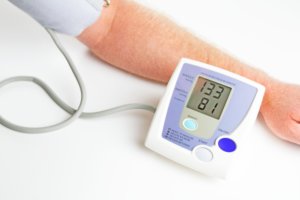 Elevated blood pressure causes more premature deaths worldwide than any other factor. Blood pressure is regulated by a number of things such as diet and lifestyle. Science has also discovered that low blood levels of
Elevated blood pressure causes more premature deaths worldwide than any other factor. Blood pressure is regulated by a number of things such as diet and lifestyle. Science has also discovered that low blood levels of  Tuberculosis (or TB) is one of most widespread diseases in the world. It claims millions of human lives every year, especially in underdeveloped countries. A team of scientists from Queen Mary University in London has discovered that
Tuberculosis (or TB) is one of most widespread diseases in the world. It claims millions of human lives every year, especially in underdeveloped countries. A team of scientists from Queen Mary University in London has discovered that  Stress is associated with a host of physical and psychological health problems such as headache, fatigue, tension, insomnia, sore throat, constipation, flu-like symptoms, depression, and anxiety. Stress is not all in your mind. It is a physiological condition that affects the whole body and increases your need for specific nutrients. Earlier studies carried out with humans and animals have shown that supplements of
Stress is associated with a host of physical and psychological health problems such as headache, fatigue, tension, insomnia, sore throat, constipation, flu-like symptoms, depression, and anxiety. Stress is not all in your mind. It is a physiological condition that affects the whole body and increases your need for specific nutrients. Earlier studies carried out with humans and animals have shown that supplements of 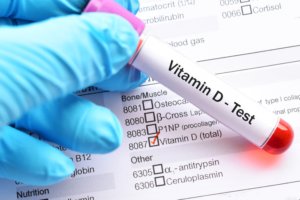 All cells in the body depend on
All cells in the body depend on 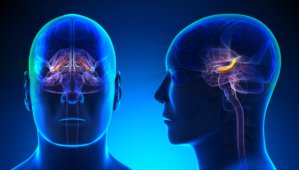 Scientists from Queensland in Australia have discovered that
Scientists from Queensland in Australia have discovered that 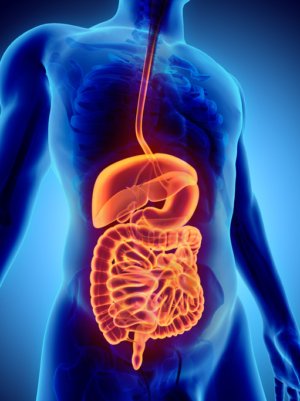 A healthy and regular digestion requires
A healthy and regular digestion requires 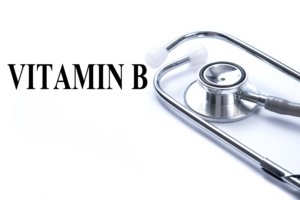 An increased intake of
An increased intake of  According to a study from Columbia University’s College of Dental Medicine and Vagelos College of Physicians and Surgeons, there are certain compounds in fish oil that can prevent pregnancy complications that follow in the wake of a regular bacterial infection. These complications include miscarriage, preterm delivery, and infant death. There are an estimated 15 million premature deliveries per year on a global scale, and each year around one million babies die as a result of this. Preterm infants also have an increased risk of vision impairment, retarded physical development, and learning disabilities. The researchers therefore suggest new strategies for recommending nutritional supplements and fish oil supplements during pregnancy.
According to a study from Columbia University’s College of Dental Medicine and Vagelos College of Physicians and Surgeons, there are certain compounds in fish oil that can prevent pregnancy complications that follow in the wake of a regular bacterial infection. These complications include miscarriage, preterm delivery, and infant death. There are an estimated 15 million premature deliveries per year on a global scale, and each year around one million babies die as a result of this. Preterm infants also have an increased risk of vision impairment, retarded physical development, and learning disabilities. The researchers therefore suggest new strategies for recommending nutritional supplements and fish oil supplements during pregnancy.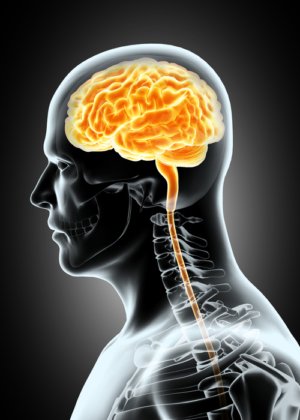 Most people think of vitamin C in connection with the immune defense, but as it turns out, the largest concentration of
Most people think of vitamin C in connection with the immune defense, but as it turns out, the largest concentration of  Alcohol has a greater negative impact on public health than most other things. It is commonly known that alcohol abuse burdens the liver and depletes the body of B vitamins. Now, scientists have also demonstrated that overconsumption of alcohol leaches
Alcohol has a greater negative impact on public health than most other things. It is commonly known that alcohol abuse burdens the liver and depletes the body of B vitamins. Now, scientists have also demonstrated that overconsumption of alcohol leaches  "After about one week of taking the Q10 supplement I could feel a huge difference," says 23-year old Alan Piccini, who has been suffering from extreme fatigue and muscle aches ever since he was a child.
"After about one week of taking the Q10 supplement I could feel a huge difference," says 23-year old Alan Piccini, who has been suffering from extreme fatigue and muscle aches ever since he was a child. “Taking capsules with co-enzyme Q10 has freed me of the severe side effects of my cholesterol lowering medicine,” Mrs Franken explains.
“Taking capsules with co-enzyme Q10 has freed me of the severe side effects of my cholesterol lowering medicine,” Mrs Franken explains.